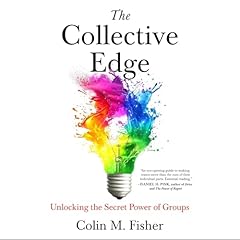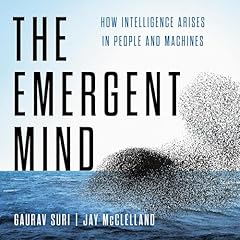
Mathematica
A Secret World of Intuition and Curiosity
No se pudo agregar al carrito
Add to Cart failed.
Error al Agregar a Lista de Deseos.
Error al eliminar de la lista de deseos.
Error al añadir a tu biblioteca
Error al seguir el podcast
Error al dejar de seguir el podcast
Obtén 3 meses por US$0.99 al mes
 Exclusivo para miembros Prime: ¿Nuevo en Audible? Obtén 2 audiolibros gratis con tu prueba.
Exclusivo para miembros Prime: ¿Nuevo en Audible? Obtén 2 audiolibros gratis con tu prueba.
Compra ahora por $20.70
-
Narrado por:
-
Mike Lenz
Math has a reputation for being inaccessible. People think that it requires a special gift or that comprehension is a matter of genes. Yet, the greatest mathematicians throughout history, from Rene Descartes to Alexander Grothendieck, have insisted that this is not the case. Like Albert Einstein, who famously claimed to have "no special talent," they said that they had accomplished what they did using ordinary human doubts, weaknesses, curiosity, and imagination.
David Bessis guides us on an illuminating path toward deeper mathematical comprehension, reconnecting us with the mental plasticity we experienced as children. With simple, concrete examples, Bessis shows how mathematical comprehension is integral to the great learning milestones of life, such as learning to see, to speak, to walk, and to eat with a spoon.
Focusing on the deeply human roots of mathematics, Bessis dispels the myths of mathematical genius. He offers an engaging initiation into the experience of math not as a series of discouragingly incomprehensible logic problems but as a physical activity akin to yoga, meditation, or a martial art. This perspective will change the way you think not only about math but also about intelligence, intuition, and everything that goes on inside your head.
©2022 Éditions du Seuil; English translation copyright 2024 by Kevin Frey (P)2024 TantorLos oyentes también disfrutaron:




















Las personas que vieron esto también vieron:


















Dislike: pdf isn't available in my audible app
i am trying it and i think it might be working
Se ha producido un error. Vuelve a intentarlo dentro de unos minutos.
Then, to my delight, I discovered in this one of the best guides to imagination and general creativity I've ever read. I've recommended the book to my friends, especially the artistic types, who were giving me some side-eye until I went into some of the details (which I'll do below).
What you'll get out of this book:
1. Intuition is not just some magical thing that you've either got or your don't. You can train it by thinking through things both creatively and with logic. You can make it BETTER! Because it's your brain! And you'll get some concrete approaches on how to do this.
2. Math people are really good at creative visualization (and other creative sensory imagination -- not just pictures). Not just naturally, but because they've trained this skill doing lots of other seemingly random imaginative exercise. Using imagination, you can calculate stuff without having to know a bunch of formulas. (I could go into more detail, but I'm not giving away the whole book because it's valuable to read/listen to it and try his exercises.)
3. You can then apply these imaginative techniques and to improving your skills in all kinds of seemingly unrelated areas. The way he talks about feeling out formulas, for example, reminds me very much of writing and feeling out the shape of a story. I also directly see how what he's talking in creative visualization will make you better at drawing from the imagination. I can draw from reference, but I have a hard time drawing from imagination. I just assumed I had a bad visual imagination, but never had the (seemingly obvious but I wasn't thinking of it) revelation that I could just focus on improving my visual imagination and memory... duh.
I've actually gained quite a bit more from this book too in regards to thinking about how I think and how I can think better. (Circular much, lol!) But I'm not going to give everything away.
Tl;dr: Whether or not you're interested in improving your math skills (it was fun to improve some of mine but a that's not why I got this book), Mathematica is a winner if you're interested in learning more about how to use and improve your imagination. And it's fun!
Notes for audio: The figures are not included though I hope they are working on a PDF for this audio. Here's what jammed me up and how I fixed it: The icosahedron is basically a 20 sided di (think D&D d20). The super one has a picture on Wikipedia.
For the visualization for adding up to 100 whole numbers, it's helpful to think of it as six sided dice (d6) instead of cubes which felt harder to visualize for me, idk why. Start with doing it to three first, then four, then five so you understand the nature of the question. The you will get the rest of it).
There are some good videos on YouTube which will walk you through the infinity set and different infinity sizing stuff. I recommend Dr. Trefor Bazett's two videos on this from his Cool Math series. They came up when I looked on YouTube about different size infinities, so just look him up with infinity size and you'll probably get them. The videos weren't long and quite a bit of fun.
Still working on the knot thing, but I'll be coming back to it when I find better reference.
Hope this helps! The important thing is to get the process down more than the results, So don't stress it too much.
Great General Creativity Guide (w' math as a lens)
Se ha producido un error. Vuelve a intentarlo dentro de unos minutos.
Magic of mathematics accessible to everyone
Se ha producido un error. Vuelve a intentarlo dentro de unos minutos.
Obviously wrong
Se ha producido un error. Vuelve a intentarlo dentro de unos minutos.
I found it poorly organized and repetitive. It mainly focused on the author's experience with math and interesting stories about historic figures in mathematics and how their sometimes unique attitudes and approaches to math led to advances in the field.
Unfortunately, the author frequently refers to illustrations, but the audible version has NONE. Furthermore, the author mentions that one of the last math classes he taught was for non-math majors. The class was for liberal arts students, and it was implied that he taught them how to use, yes, creativity, visualization, and intuition to better understand math. But he provided NO examples of his course content. I'd also like to hear from these students. What did they think of the course? What did they get out of it, if anything? One of the things you do as a writer is anticipate questions that they reader will have. This book doesn't do that.
I sometimes wondered if the book was written for math teachers, but, again, there are no concrete examples or exercises of how to better teach math. I also thought the book was supposed to be for creative people like me to understand math better, but I expected examples and exercises that would allow me to use intuition and visualization in solving and understanding math problems. Alas, there's nothing like that in this book.
It feels like a bunch of notes and anecdotes the author collected and tossed together like a salad. I ended up annoyed with the author and the book and wish I had not wasted an Audible credit on it.
Did Not Deliver
Se ha producido un error. Vuelve a intentarlo dentro de unos minutos.


